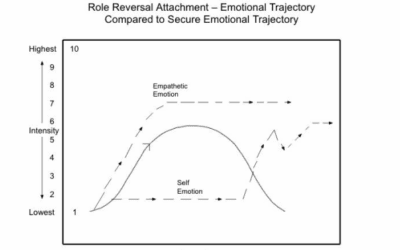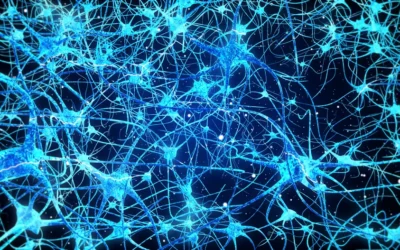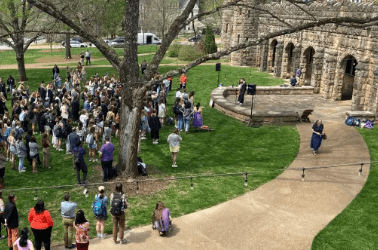Preparing for Alabama's New Mental Health Consent Laws: What Therapists Need to Know Alabama's mental health landscape is about to undergo a significant change. Senate Bill 101, which recently passed the Alabama House, will raise the age of medical and mental health consent from 14 to 18 years old. This shift represents one of the most substantial changes to minor consent laws in our state's recent history, and every mental health professional needs to be prepared. The bill is scheduled to take effect on...
Mental Health in Alabama: Addressing Unique Challenges and Building Statewide Resilience
Comprehensive Mental Health Resources for the Heart of Dixie
Welcome to Taproot Therapy Collective’s dedicated focus on mental health challenges, resources, and innovations specific to Alabama residents. As Birmingham’s leading integrative therapy practice, we understand that mental health care in Alabama requires deep appreciation for regional culture, rural access challenges, historical trauma, and the unique strengths and struggles that define life in the Heart of Dixie.
Understanding Alabama’s Mental Health Landscape
Our Mental Health in Alabama blog category examines the distinctive factors that influence psychological wellbeing across our state, from the rural communities of the Black Belt to the urban centers of Birmingham, Mobile, and Huntsville. Alabama faces unique mental health challenges including limited rural access to care, higher rates of trauma and adverse childhood experiences, economic stressors, and cultural factors that both support and complicate mental health treatment.
This approach builds on the comprehensive therapeutic services detailed on our main services page, where we provide specialized trauma treatment, EMDR, Brainspotting, and somatic therapies that address the complex mental health needs of Alabama residents while honoring Southern cultural values and community traditions.
Alabama-Specific Mental Health Challenges and Statistics
Alabama consistently ranks among the states with highest rates of adverse childhood experiences (ACEs), with nearly 70% of adults reporting at least one traumatic childhood experience. These statistics reflect generational patterns of trauma, poverty, and limited access to mental health resources that require comprehensive, culturally informed therapeutic approaches.
Rural mental health access represents a critical challenge, with over 60% of Alabama counties designated as mental health professional shortage areas. Many Alabama residents travel hours for specialized mental health care or go without treatment entirely, contributing to higher rates of suicide, substance abuse, and untreated depression and anxiety disorders.
Economic factors significantly impact mental health across Alabama, with poverty rates, unemployment, and underemployment creating chronic stress that exacerbates mental health conditions. Understanding how economic insecurity affects psychological wellbeing helps inform treatment approaches that address both individual symptoms and systemic stressors affecting entire communities.
Research from University of Alabama at Birmingham School of Medicine demonstrates how social determinants of health including housing instability, food insecurity, and limited healthcare access contribute to mental health disparities across Alabama, requiring integrated approaches that address both psychological symptoms and social support needs.
Cultural Considerations for Alabama Mental Health
Southern Culture and Mental Health Stigma creates both challenges and resources for mental health treatment in Alabama. Traditional Southern values of self-reliance, family loyalty, and religious faith can create barriers to seeking professional help while simultaneously providing strong community support networks and spiritual resources for coping with difficulties.
Understanding how concepts of masculinity, femininity, and family honor influence help-seeking behavior helps therapists provide more effective and culturally responsive treatment that honors Southern cultural values while addressing mental health needs. Our approach recognizes that effective therapy in Alabama requires cultural competency and appreciation for regional identity and values.
Religious and Spiritual Resources play central roles in Alabama communities, with high rates of church attendance and religious identification providing both mental health resources and potential sources of support or conflict. Understanding how different religious traditions approach mental health, family relationships, and personal struggles enhances therapeutic effectiveness while respecting spiritual commitments and community connections.
Historical Trauma and Collective Healing addresses how Alabama’s complex history including slavery, segregation, civil rights struggles, and ongoing racial tensions affects mental health across communities. Birmingham’s pivotal role in civil rights history creates unique opportunities for exploring collective trauma, resilience, and healing while addressing how historical events continue influencing contemporary mental health experiences.
Regional Mental Health Resources and Access
Birmingham as Mental Health Hub serves as Alabama’s primary center for specialized mental health services, with major medical centers, research institutions, and training programs providing advanced care options. Our comprehensive approach detailed in our about section emphasizes collaboration with regional healthcare systems to ensure clients receive coordinated, high-quality care.
Teletherapy Expanding Rural Access represents a crucial innovation for addressing Alabama’s geographic barriers to mental health care. Our specialized teletherapy services extend evidence-based treatment to underserved areas throughout Alabama, including dedicated programs for Auburn residents, Florence area communities, and Mobile region populations.
These teletherapy programs specifically address the unique mental health needs of different Alabama regions, from university communities facing academic stress to coastal areas dealing with weather-related trauma to rural communities struggling with economic challenges and social isolation.
Community Mental Health Centers across Alabama provide essential services for residents with severe mental illness, substance abuse disorders, and complex trauma histories. Understanding how community mental health systems work and building collaborative relationships with local providers enhances treatment coordination and ensures clients receive comprehensive care that addresses both immediate crisis needs and long-term recovery goals.
Alabama-Specific Mental Health Conditions and Treatment Approaches
Trauma and PTSD Treatment addresses high rates of trauma exposure in Alabama including military trauma (given significant veteran populations), domestic violence, child abuse, natural disasters, and community violence. Our specialized trauma treatment approaches including EMDR, Brainspotting, and Lifespan Integration provide effective interventions for complex trauma while honoring Southern cultural approaches to resilience and recovery.
Substance Abuse and Co-Occurring Disorders reflect Alabama’s ongoing struggles with opioid addiction, alcohol abuse, and prescription drug misuse that often accompany untreated mental health conditions. Understanding how substance abuse intersects with mental health requires integrated treatment approaches that address both psychological symptoms and addiction recovery while building on community support networks and spiritual resources.
Depression and Suicide Prevention addresses Alabama’s concerning suicide rates, particularly among rural populations, elderly residents, and young adults. Effective suicide prevention requires understanding cultural factors that both protect against and contribute to suicidal ideation while building community-based prevention and intervention strategies.
Anxiety and Stress-Related Disorders examines how economic uncertainty, social change, and cultural pressures contribute to anxiety disorders across Alabama populations. Treatment approaches must address both individual symptoms and environmental stressors while building on Southern cultural strengths including family support, community connection, and spiritual coping strategies.
Research and Innovation in Alabama Mental Health
Contemporary mental health research from Auburn University, University of Alabama, and University of South Alabama explores innovative approaches to rural mental health delivery, culturally responsive treatment methods, and technology-enhanced care that addresses Alabama’s unique challenges and population needs.
Collaborative research initiatives examine how telemedicine, mobile crisis services, and community-based interventions can improve mental health outcomes across Alabama while reducing costs and increasing accessibility. These studies inform policy development and program implementation that addresses systemic barriers to mental health care.
Partnership research with Alabama Department of Mental Health focuses on developing evidence-based programs that address Alabama’s specific mental health priorities including suicide prevention, trauma-informed care, and integrated treatment for co-occurring disorders while building on existing community strengths and resources.
Birmingham’s Role in Statewide Mental Health Leadership
As Alabama’s largest city and medical center, Birmingham plays crucial leadership roles in statewide mental health initiatives including provider training, research coordination, and policy development. Our participation in these broader efforts connects individual therapeutic work with systemic change efforts that improve mental health resources and access across Alabama.
Birmingham’s diverse population provides opportunities for developing and testing culturally responsive treatment approaches that can be adapted for implementation in other Alabama communities. Understanding how urban mental health innovations translate to rural settings helps ensure that evidence-based treatments reach all Alabama residents regardless of geographic location.
The city’s role as transportation and technology hub enables innovative service delivery models including teletherapy, mobile crisis services, and consultation programs that extend specialized expertise to underserved areas throughout Alabama.
Policy and Advocacy for Alabama Mental Health
Understanding Alabama’s mental health policy landscape helps therapists and clients navigate insurance systems, access state resources, and advocate for improved services and support. Current policy priorities include Medicaid expansion, rural access improvement, and integration of mental health services with primary healthcare delivery.
Advocacy efforts focus on reducing stigma, improving insurance coverage for mental health services, and developing comprehensive approaches to addressing social determinants of health that significantly impact psychological wellbeing across Alabama communities.
Professional advocacy includes supporting mental health provider training, supervision, and continuing education programs that ensure Alabama residents have access to high-quality, culturally competent mental health services regardless of geographic location or economic circumstances.
Connect with Our Alabama Mental Health Community
For deeper exploration of mental health challenges and resources specific to Alabama, check out more on the Discover + Heal + Grow Taproot Therapy Collective blog and podcast where we regularly feature Alabama mental health professionals, researchers, and advocates working to improve services and outcomes across our state.
Subscribe to our YouTube channel for discussions on Alabama mental health challenges and innovations, listen to our podcast for interviews with Alabama mental health leaders and researchers, follow us on Instagram for Alabama mental health resources and awareness information, connect on LinkedIn for professional Alabama mental health networking and resources, find us on Google Maps for comprehensive mental health services serving Alabama residents, and join our Reddit community for discussions on Alabama mental health challenges, resources, and advocacy efforts.
Featured Article Categories
Our Mental Health in Alabama blog includes Rural Access and Teletherapy addressing geographic barriers to mental health care, Cultural Competency exploring Southern culture and mental health intersections, Trauma and Resilience examining Alabama-specific trauma patterns and recovery resources, Policy and Advocacy covering Alabama mental health legislation and systems change, Research and Innovation highlighting Alabama-based mental health studies and programs, Community Resources providing comprehensive guides to Alabama mental health services, Suicide Prevention addressing Alabama’s suicide rates and prevention strategies, and Substance Abuse Integration examining co-occurring disorders and treatment approaches specific to Alabama populations.
Specialized Alabama-Focused Programs
We offer monthly Alabama Mental Health Advocacy Groups for individuals interested in policy and systems change, quarterly Rural Mental Health Outreach Programs providing consultation and training for underserved areas, specialized Cultural Competency Training for mental health professionals serving Alabama populations, and Alabama Trauma Recovery Intensives addressing state-specific trauma patterns and community healing approaches.
Start Your Alabama Mental Health Journey Today
Understanding and addressing mental health challenges specific to Alabama requires cultural competency, regional expertise, and commitment to improving access and outcomes for all residents. Our Birmingham-based team at Taproot Therapy Collective combines deep knowledge of Alabama culture and mental health landscape with evidence-based treatments detailed in our psychology and research section to provide comprehensive care that honors both individual needs and community context.
Contact Taproot Therapy Collective: 📍 2025 Shady Crest Dr. Suite 203, Hoover, AL 35216
📞 (205) 598-6471
🌐 www.GetTherapyBirmingham.com
🎧 Podcast: gettherapybirmingham.podbean.com
We provide comprehensive mental health services that address Alabama-specific challenges while honoring Southern cultural values and community strengths for effective, culturally responsive therapeutic care.
Discover + Heal + Grow with Taproot Therapy Collective – Birmingham’s comprehensive resource for Alabama mental health understanding, advocacy, and culturally responsive therapeutic care.
Attachment, Emotional Arcs, and Somatic Approaches: From Mary Main’s Revolutionary Research to Contemporary Therapeutic Integration
Brainspotting in Alabama: Revolutionary Trauma Therapy for Deep Healing, Evidence Based Practice and Research Psychology, Mental Health and Psychotherapy Resources in Alabama, Mental Health and Trauma Therapy in Alabama, Therapy Resources for Alabama
Mary Main's Groundbreaking Attachment Research Mary Main (1943-2023) transformed our understanding of attachment through her revolutionary contributions to developmental psychology and attachment research. As a protégé of Mary Ainsworth at Johns Hopkins University, Main expanded attachment theory beyond its original three categories by discovering a fourth pattern known as disorganized/disoriented attachment and developing the Adult Attachment Interview (AAI) to assess attachment representations across...
Coping with the Loss of a Beloved Pet
Brainspotting in Alabama: Revolutionary Trauma Therapy for Deep Healing, Mental Health and Psychotherapy Resources in Alabama, Mental Health and Trauma Therapy in Alabama, Therapy Resources for Alabama
Grief, Healing, and Brainspotting for the Loss of a Pet The bond between humans and their animal companions is a powerful one. Pets provide us with unconditional love, emotional support, and constant companionship. They are a source of joy, laughter, and comfort. So when a beloved pet dies, it's no surprise that their loss can be devastating. Grief over the loss of a pet is often minimized or misunderstood by others. Some may not understand the depth of the bond you shared with your animal friend. "It's just a...
The Urgent Need for Medicaid Expansion and Healthcare Reform in Alabama:
Executive and Physician Burnout, Mental Health and Psychotherapy Resources in Alabama, Mental Health and Trauma Therapy in Alabama
An Interview with Dr. Madeline Eckenrode The U.S. healthcare system is broken in many ways, leaving millions of Americans un- or under-insured and unable to access the care they need. This is especially true in states like Alabama that have not expanded Medicaid under the Affordable Care Act. In an eye-opening interview on the Taproot Therapy Collective podcast, hosts Joel Blackstock and Haley Beech speak with Dr. Madeline Eckenrode, a primary care physician at the University of Alabama at Birmingham (UAB),...
Integrating qEEG BrainMapping into Your Clinical Practice
Alternative Medicine and Holistic Health, Mental Health and Psychotherapy Resources in Alabama, Mental Health and Trauma Therapy in Alabama, Neuroscience and the Brain for Therapists, Therapy Resources for Alabama
Unlocking the Power of qEEG Brain Mapping and Neurostimulation: A Game-Changer for Mental Health Treatment Mental health conditions such as ADHD, autism spectrum disorder (ASD), PTSD, anxiety, and depression can significantly impact an individual's quality of life, relationships, and overall well-being. While traditional treatment approaches like therapy and medication can be effective, cutting-edge technologies such as qEEG brain mapping and neurostimulation are revolutionizing the field of mental health...
Comprehensive Support Systems for College Students: Addressing Mental Health and Wellness on Campus
Executive and Physician Burnout, Mental Health and Psychotherapy Resources in Alabama, Mental Health and Trauma Therapy in Alabama, Therapy and Crisis Intervention for College Students in Alabama, Understanding Neurodivergence and Neurodiversity in Therapy
College represents a critical developmental period marked by significant transitions, academic pressures, and identity formation. Creating effective support systems requires understanding both neurobiological factors and social dimensions that affect student wellbeing. This article explores evidence-based approaches to supporting college students through various challenges, with a particular focus on trauma-informed care and holistic wellness strategies. Understanding the Modern College Student Experience Today's...
Supporting Neurodivergent College Students: A Comprehensive Approach to Mental Health and Academic Success
Executive and Physician Burnout, Mental Health and Psychotherapy Resources in Alabama, Mental Health and Trauma Therapy in Alabama, Therapy and Crisis Intervention for College Students in Alabama, Understanding Neurodivergence and Neurodiversity in Therapy
College represents a pivotal transition in young adults' lives—a period of newfound independence coupled with challenging academic and social demands. For neurodivergent students, including those with autism spectrum disorder, ADHD, and dyslexia, this transition presents unique challenges that require specialized support. Understanding and addressing these challenges is essential for creating inclusive campus environments where all students can thrive. Understanding Neurodiversity as a Natural Variation Modern...
The Comprehensive Approach to Supporting College Students: Integrating Mind, Body, and Brain
Mental Health and Psychotherapy Resources in Alabama, Mental Health and Trauma Therapy in Alabama, Self Help and Personal Development, Somatic Experiencing In Alabama, Therapy and Crisis Intervention for College Students in Alabama, Understanding Neurodivergence and Neurodiversity in Therapy
Understanding Today's College Student Challenges Today's college students face unprecedented challenges that extend beyond academic demands. From navigating complex social environments to managing their mental health, students need multifaceted support systems that address their holistic wellbeing. The gut-brain connection plays a crucial role in cognitive functioning and mental health, offering innovative pathways for supporting student success beyond traditional interventions. The Neurobiological Foundation of...
Comprehensive Support for Alabama College Students: Advanced Therapeutic Approaches
Mental Health and Psychotherapy Resources in Alabama, Mental Health and Trauma Therapy in Alabama, Therapy and Crisis Intervention for College Students in Alabama
The Modern College Mental Health Landscape Today's college students face unprecedented challenges balancing academic demands, social pressures, and preparation for future careers. For students at Alabama institutions like Auburn University and University of Alabama, these challenges can be particularly significant as they navigate the transition to independence while managing rigorous academic programs. The mental health statistics among college students are concerning, with anxiety and depression rates...
Help! My College Student Needs Therapy
Lifespan integration in Alabama, Mental Health and Psychotherapy Resources in Alabama, Mental Health and Trauma Therapy in Alabama, Recovering from Abuse, Therapy and Crisis Intervention for College Students in Alabama, Therapy Resources for Alabama
Discover innovative mental health solutions for college students at Taproot Therapy Collective. Our comprehensive approach integrates cutting-edge treatments like QEEG brain mapping, neurofeedback, and somatic therapies with specialized support for ADHD, anxiety, trauma, and neurodiversity. With both in-person and teletherapy options available across Alabama, we provide accessible, evidence-based care tailored to the unique challenges of university life. From academic performance to emotional wellbeing, our expert therapists help students thrive during this critical developmental period.RetryClaude can make mistakes. Please double-check responses.
EMDR Therapy for Children and Teens in Alabama: A Powerful Tool for Healing Trauma and Emotional Pain
Mental Health and Trauma Therapy in Alabama, Recovering from Abuse, Self Help and Personal Development
EMDR therapy offers a powerful, evidence-based approach to healing trauma and promoting mental health in children and teens. By directly targeting the root of distressing memories and beliefs, EMDR can create rapid, lasting changes in symptoms, self-perception, and overall functioning.











